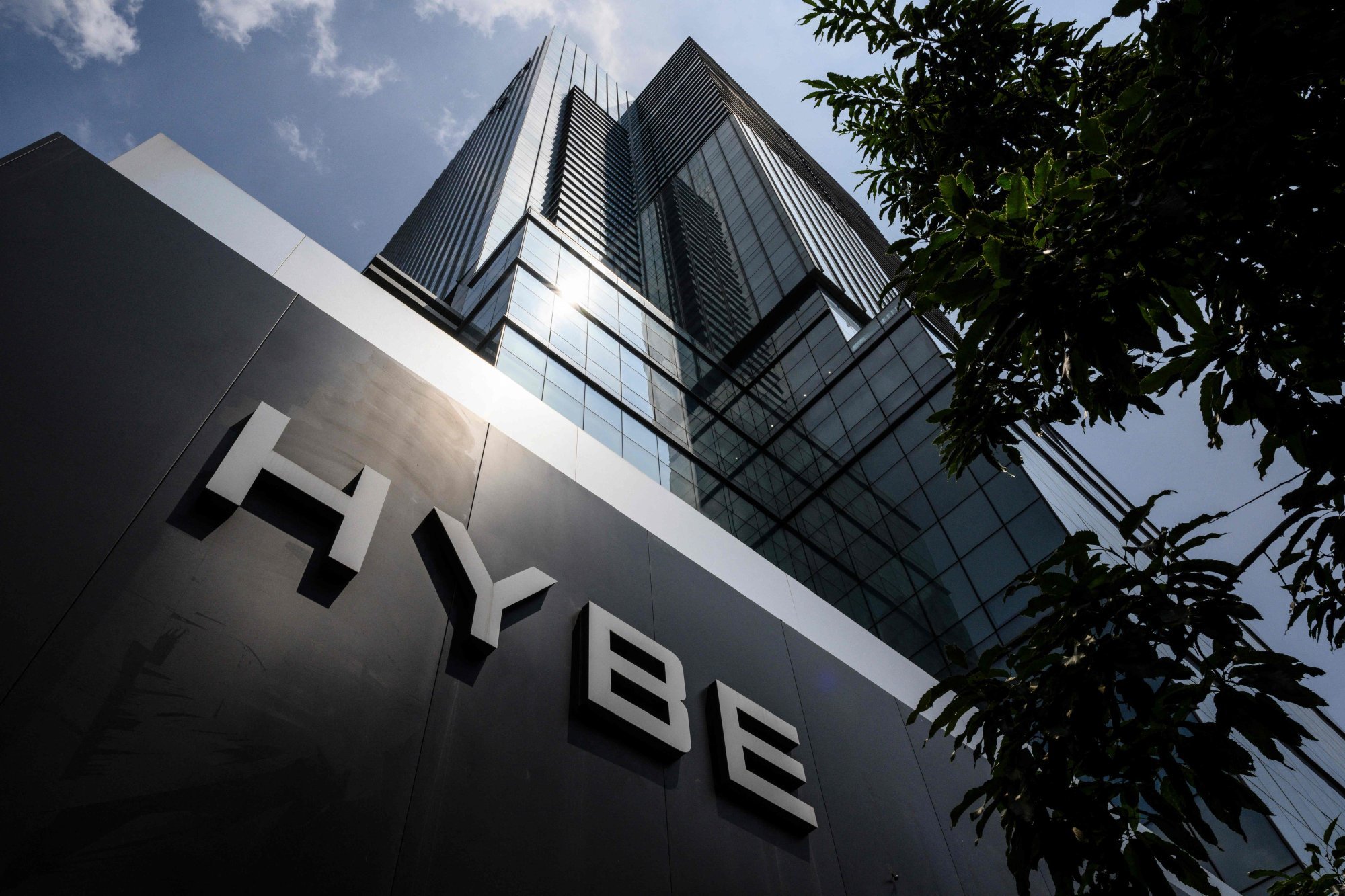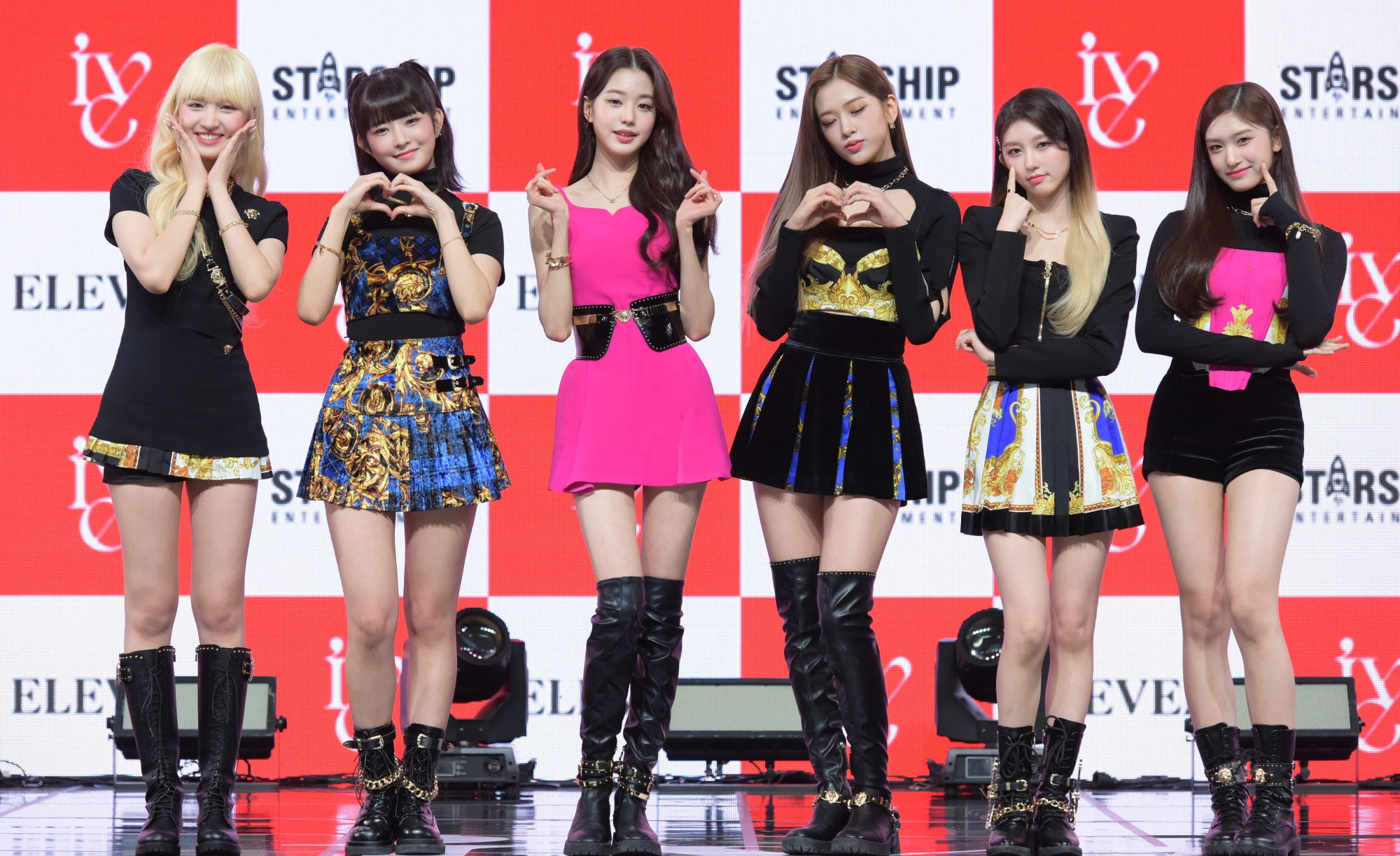What ‘7-year curse’? BTS, Blackpink and the future of K-pop
As the K-pop powerhouses return to centre stage, they set a daunting new benchmark for those who would follow in their footsteps

Few groups survive a decade in the relentless world of K-pop. But on a charged June night in Goyang, industry juggernauts BTS celebrated 12 years since they first burst onto the scene.
Last month’s 2025 BTS Festa saw more than 60,000 fans pack the Kintex centre in the Seoul suburb to commemorate the group’s anniversary and see all seven members of BTS back together again for the first time since they had fulfilled their mandatory military service.
That same weekend, BTS member J-Hope held the final dates of his world tour in a nearby stadium complex.
In a live stream, the group set the internet alight by announcing that a comeback album and long-awaited world tour were in the works for spring, delighting their global fandom, or “Army”.
“Hey guys, we are back,” band member Jimin told viewers. “We’re also planning a world tour alongside the album. We’ll be visiting fans all around the world.”

Just a few days earlier, thousands had gathered outside the headquarters of Hybe, the agency that manages the group, in Seoul’s Yongsan district, braving the summer heat for a fleeting glimpse of their idols.
Since debuting in 2013, BTS have defied the “seven-year curse”, a notorious threshold in K-pop that marks the typical lifespan of management contracts and, for many, the end of the road.
Military obligations, solo ambitions and public scandals have prematurely ended the careers of even the industry’s brightest stars. But BTS, like their contemporaries Blackpink, have rewritten the rules, proving themselves not just survivors but pioneers at the pinnacle of global pop culture.
As both groups prepare to resume activities at the height of their fame, a question lingers over the K-pop industry: can any new act hope to replicate their extraordinary trajectory, or are BTS and Blackpink once-in-a-generation phenomena?
For Kim Jeong-seob, a professor at Sungshin Women’s University and an authority on Korean pop culture, the connection between BTS and their fans goes far deeper than celebrity adulation – it’s almost familial.

“Fans of BTS can be considered lifelong companions to the seven members of the group,” said Kim, who has also written books about the group’s global impact.
The group’s lyrics, often centred on themes of self-love, mental health and identity, have resonated with their audience. And their influence has transcended music, inspiring civic action with BTS fans mobilising for causes ranging from Black Lives Matter to the Palestinian struggle for freedom.
Unhandled type: inline-plus-widget {“type”:”inline-plus-widget”}
Even during the group’s hiatus, the BTS Army remained fiercely loyal, consuming behind-the-scenes videos on YouTube and exclusive content on Hybe’s Weverse platform.
Offline, regional fan clubs blossomed. While BTS’ official Instagram account boasts more than 77 million followers, grass-roots communities in countries from Thailand to Mexico continue to organise events, exhibitions and charity drives – a testament to the enduring power of their fandom.
“While they are considered to be poets in their artistry, group members lead trends in fashion and trends,” Kim said. “If K-pop groups in the past dominated the Asian market, groups like BTS and Blackpink put out music that is highly anticipated by listeners all over the world.”

That global reach has only intensified in recent years. BTS’ historic Billboard No 1 in 2020 shattered ceilings for Korean acts in Western markets. While earlier groups like Wonder Girls and Big Bang had toured internationally, their mainstream impact in the West was limited.
Meanwhile, Blackpink’s return this year marked another milestone. After a year-long hiatus following their Born Pink world tour and the conclusion of their original contract with YG Entertainment, the quartet reunited under new terms for their Deadline world tour.
Their comeback launch at Goyang Sports Complex in July, featuring the live debut of their single “Jump”, signalled a bold, global-first strategy. The tour’s two sold-out shows at Los Angeles’ 70,000-seat SoFi Stadium reflect their international appeal.
Blackpink’s members have also flourished outside music. Rose’s collaboration with Bruno Mars, “APT”, soared to No 3 on the Billboard Hot 100. Jennie performed solo at Coachella and starred in the US drama The Idol. All four serve as global ambassadors for luxury brands including Chanel and Louis Vuitton.

Such visibility has helped them build strategic partnerships. Blackpink signed with Universal Music’s Interscope Records in 2018, while Hybe’s 2021 merger with Scooter Braun’s Ithaca Holdings placed BTS alongside global stars like Justin Bieber and Ariana Grande.
Kim said that these international partnerships were instrumental in the success of the groups overseas, while their comebacks coincided with President Lee Jae-myung’s ambition to expand South Korea’s cultural footprint to a 300 trillion won (US$219 billion) domestic market and a 50 trillion won export industry.
“Their comebacks will definitely attract investments in various sectors of domestic and international markets,” he said.
“As the country’s new administration has emphasised stronger engagements with countries like China and Russia, the resumption of BTS’ activities will open a new era for South Korea’s market. I even think they have a chance to receive the Nobel Prize in the near future.”

K-pop’s ‘next face’?
The two groups have an outsize impact on the Korean music industry. Physical album sales dropped by nearly 20 per cent during their absence, said Lee Yong-hwan, head of the business management team at the Recording Industry Association of Korea.
“The comebacks of the two groups will lead to massive consumption from their iconic fanbases,” Lee told This Week in Asia. “Theis includes large-scale tours, global fan meetings and exhibitions which all contribute to the vitalisation of the tourism sector.”
Tourism numbers also reflect the group’s influence. South Korea welcomed 16.37 million foreign visitors last year, close to the 17.5 million record reached in 2019. For Lee, K-pop’s megastars are among the country’s most effective international ambassadors.
“Additionally, these two comebacks will provide plenty of stimulation to other major entertainment agencies like SM Entertainment and JYP who are planning their own sets of big projects,” he added.

But for all their success, industry insiders question whether a new generation can sustain K-pop’s global momentum. Stray Kids have topped the US Billboard 200 and Seventeen have amassed legions of fans in Southeast Asia, but their domestic impact remains muted compared to BTS. Girl groups like Aespa and IVE, meanwhile, are still consolidating their home-grown popularity and expanding their influence.
The industry faces further headwinds: Hybe chairman Bang Si-hyuk is under investigation for alleged fraudulent trading and legal disputes with girl group NewJeans threaten to overshadow the label’s momentum.
“If there were no issues with their music label, New Jeans would be my closest guess to the next face of the K-pop industry,” Kim said. “But there’s plenty of anticipation growing with the announcement of a new boy group from Hybe later this year and the growing influence of other groups.”
K-pop is now enjoyed wherever you go in the worldShin Jong-oh, Worl K-pop Centre director
For Shin Jong-oh, director of the World K-pop Centre in Seoul, there has never been more interest in the genre. “There’s a saying among industry insiders that dozens of K-pop groups debut every week,” he told This Week in Asia. “In the past, you became a K-pop trainee through mutual connections, but there are open auditions held in almost every corner of the world today.”
Shin has been involved in auditions in 32 countries, featuring young hopefuls dreaming of one day performing on South Korea’s biggest stages.
“I think we can say that foreign countries are a guaranteed market for K-pop groups today,” he said.
“When you pass street performers in these overseas countries, you will hear familiar melodies and lyrics oftentimes. K-pop is now enjoyed wherever you go in the world.”